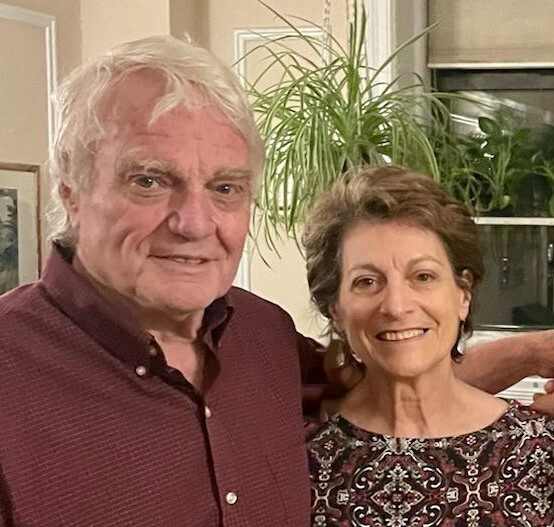
By Scott Etkin
In 1972, two years after the first Earth Day, the organization Upper West Side Recycling (UWSR) was formed on 105th Street and Riverside Drive to collect bottles and cans so these materials would be recycled, rather than sent to a landfill. At the time, New York City’s Department of Sanitation (DSNY) wasn’t yet responsible for curbside recycling — that program wouldn’t exist for another 19 years.
When Jeff and Scottie Twine moved into the building at 105th Street in 1976, they joined UWSR as volunteers and quickly began to lead the effort. Five decades later, they’re still running UWSR, making it one of the last community-based recycling organizations in NYC.
Their long-term commitment to the cause is a case study in how far the environmental movement has come, and how far it still has to go. West Side Rag spoke to the Twines last week.
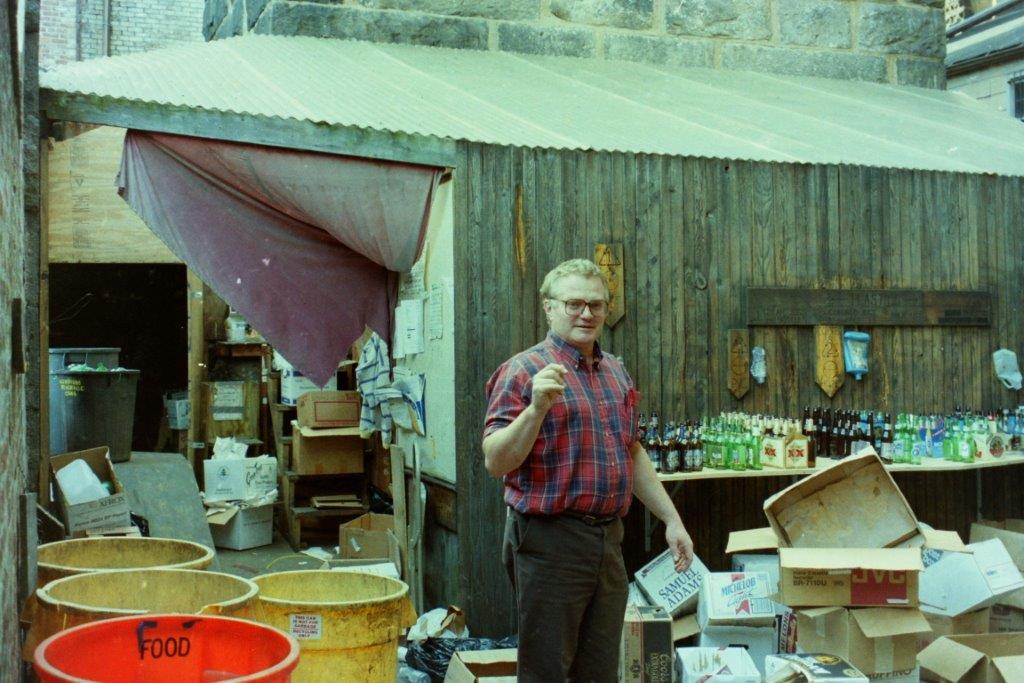
“When we started out, people thought what we were doing was a bit strange, a hippie thing to do – to be out there crushing cans and breaking glass with our young kids, one old enough to help and the other safely strapped to my back,” said Scottie. “Recycling is mainstream now, which it certainly wasn’t then.”
UWSR’s activities have evolved over the years. For its first decade on West 105th Street, UWSR was a drop-off center where volunteers collected, processed and recycled metal and glass. In the early ‘80s, UWSR officially became a nonprofit organization, relocated to the nearby Cathedral of St. John the Divine, and began to recycle paper as well.
In 1991, when DSNY started taking recycling, UWSR shifted again, creating a job-training program for formerly unemployed people to collect recyclables along routes throughout the city. “That took a lot of time and effort,” said Jeff. “I was up at the Cathedral practically every day of the week.”
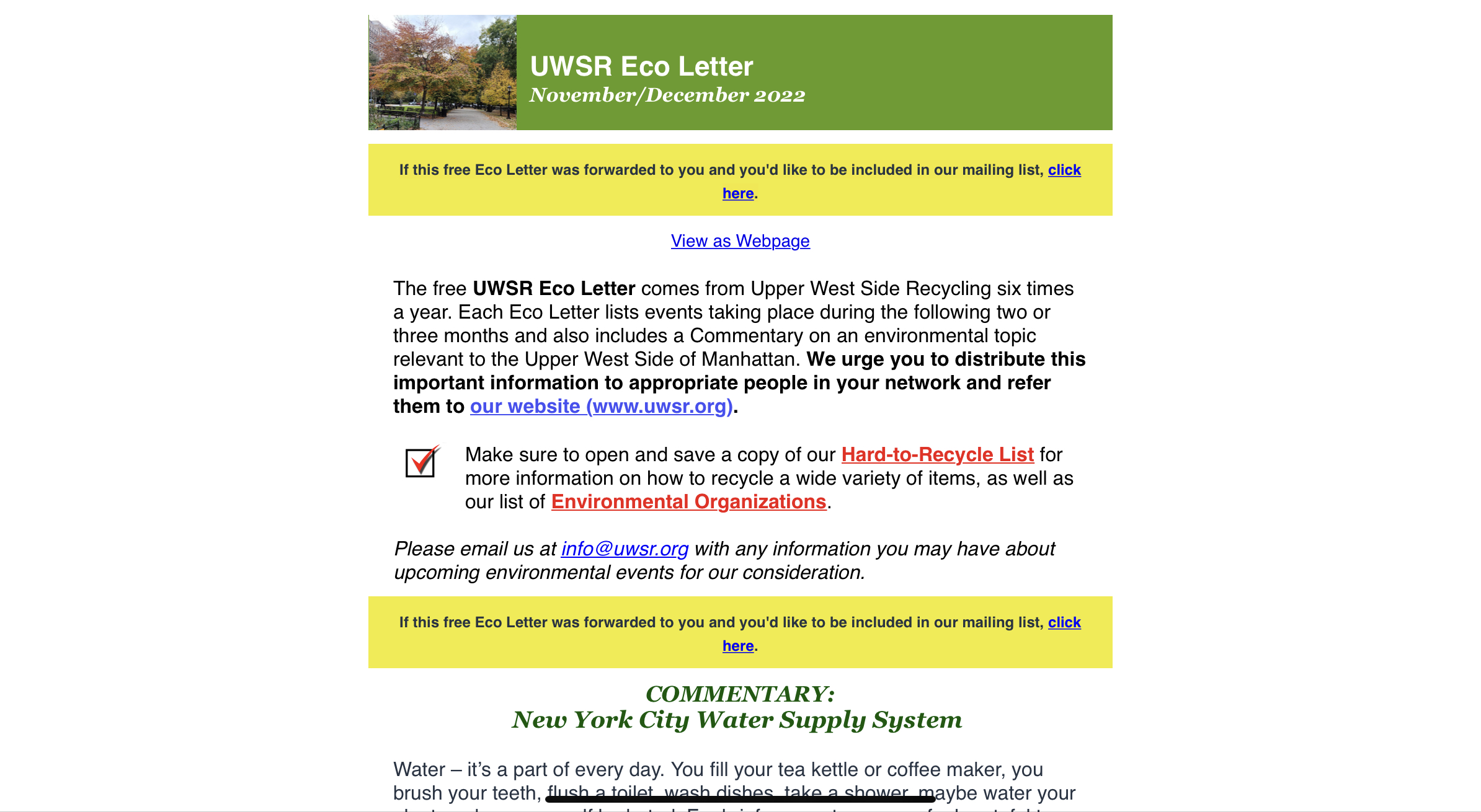
Today, Jeff and Scottie still dedicate time to UWSR through the writing and distribution of the free bi-monthly UWSR Eco Letter. They began it in 2014, with support from then-and-now Councilmember Gale Brewer, to provide information on environmental topics and local events, as well as resources on how to responsibly dispose of almost anything. Links to their Hard To Recycle List are in every Eco Letter and it’s also available on their website.
Jeff, who talks very fast and reluctantly gave away his age (it’s above 80), researches and writes an in-depth commentary about various environmental topics for each newsletter. The most recent one is about New York City’s water supply system. Scottie edits the pieces and produces the Eco Letter.
The newsletter has more than 2,500 subscribers and an open rate of 65%, far exceeding the average rate for email newsletters, which is around 21%, according to the newsletter company MailChimp.
They often receive tough – and very specific – questions at their email address, info@uwsr.org.
“People think if they want to recycle something they should be able to recycle it. They don’t always realize that there has to be a market for it,” said Jeff. “We just got a question from a woman the other day who asked what to do with unwearable clothes. And I don’t have a good answer to that, because there really is no market in the New York City area.”
The two grew up in Pound Ridge, in Westchester County, which is suburban now, but was far smaller and more rural when they were young, and which instilled in both of them an appreciation for nature.
As a boy, Jeff spent a lot of his time in the woods and fishing in local ponds, always curious about nature. “My family loved the country as well,” said Scottie, “and I was also raised to never waste things, so we already had that mindset that there was respect for the balance of the nature in which we live.”
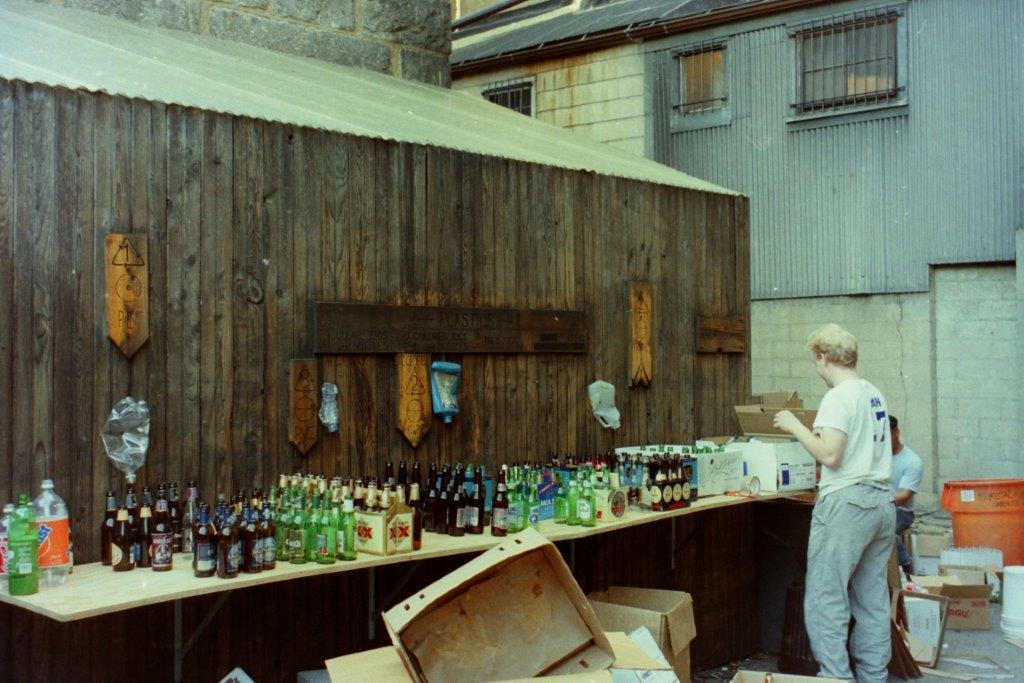
This principle has been passed down to their kids, who were both involved in UWSR from an early age. Their son, Ian, is now Deputy Director of Composting for DSNY, where he has worked for more than 20 years.
While progress has been made in recycling, compared to when they started, many challenges remain. NYC residents recycle about 17% of their total waste – half of what they could be recycling under the current program, according to GrowNYC.
“People who do recycle regularly tend to be quite passionate about it,” said Scottie. “But I’m not sure how actively involved other people are. I think there could be more city-wide focus on it – like making composting mandatory.”
On its website, UWSR acknowledges that environmental challenges are complex problems – recycling alone isn’t the answer. But they maintain that individual choices matter and add up to make a difference.
“By acting locally our individual actions can have a global effect,” Jeff writes. “For these small local actions taken together are significant when enough people participate, just like the accumulation of rain drops in our upstate reservoirs.”
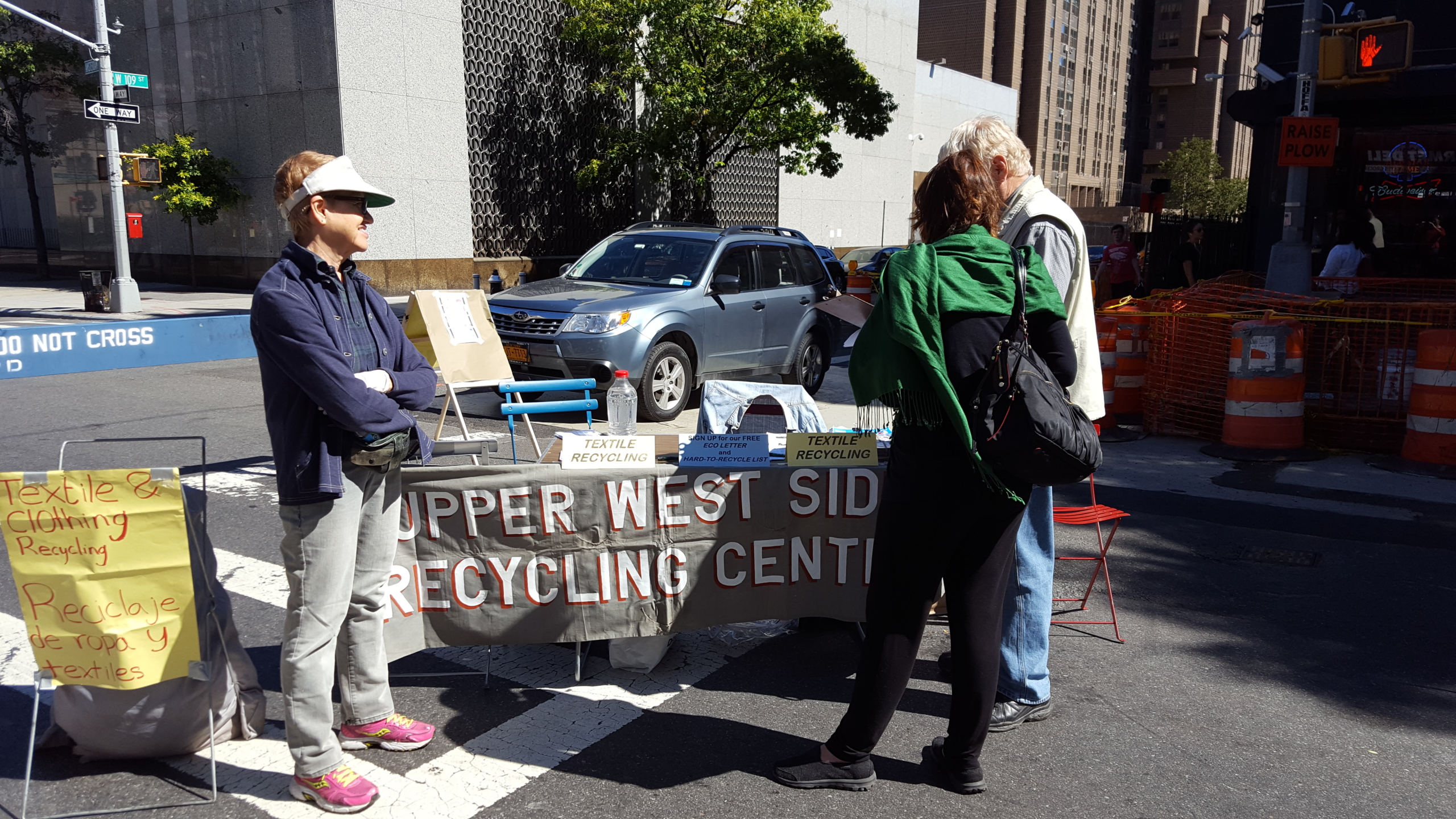










“We just got a question from a woman the other day who asked what to do with unwearable clothes. And I don’t have a good answer to that, because there really is no market in the New York City area.”
Refashion NYC from the DSNY has been available for a few years. There are dropoff sites at some farmers markets too. The clothing does not have to be wearable quality
https://www1.nyc.gov/assets/dsny/site/services/donate-goods/refashionnyc-overview
Thanks for mentioning Refashion NYC. They work with Housing Works, but the question is where the unwearable textiles actually end up: are they shredded, used for industrial cleaning, or do they just go to landfills? At least some drop-off sites at greenmarkets work with Wearable Collections, which stopped taking unwearable clothing a few years ago, We’re investigating all of this and will make sure our Hard To Recycle List has accurate information. If you have more details about this, email us info@uwsr.org. – Jeff Twine, UWSR
Natural fabrics can be recycled and spun into yar. Synthetic fabrics can be turned into insulation, or ground up into small pieces and melted down to make more plastics.
https://www.greenmatters.com/p/how-fabric-gets-recycled
Carol,
Since you seem knowledgeable about textile recycling, I’d like to talk to you. Please send your contact info to info@uwsr.org.
Questions:
– What is yar?
– Specific companies doing textile recycling, especially in the NYC area?
I’m guessing that “yar” is a typo for “yarn” 😉
The newsletter is such a great resource for the UWS. Excellent work Scottie and Jeff!
Cool story.
Unrelated note, not sure if it’s just me, but 50% of the time I access the site (via laptop browser), the in-article pictures do not load. Ads load, but nothing in the article.
Has anyone besides me found Recompose.life ? You can have your remains composted. I’m already prepaying for my composting. When nature has taken its course one option is to have your compost scattered in a National Park.
It has made me so happy to have found this option.
Great article! Jeff and Scottie have done a great service to our neighborhood! Carry on!